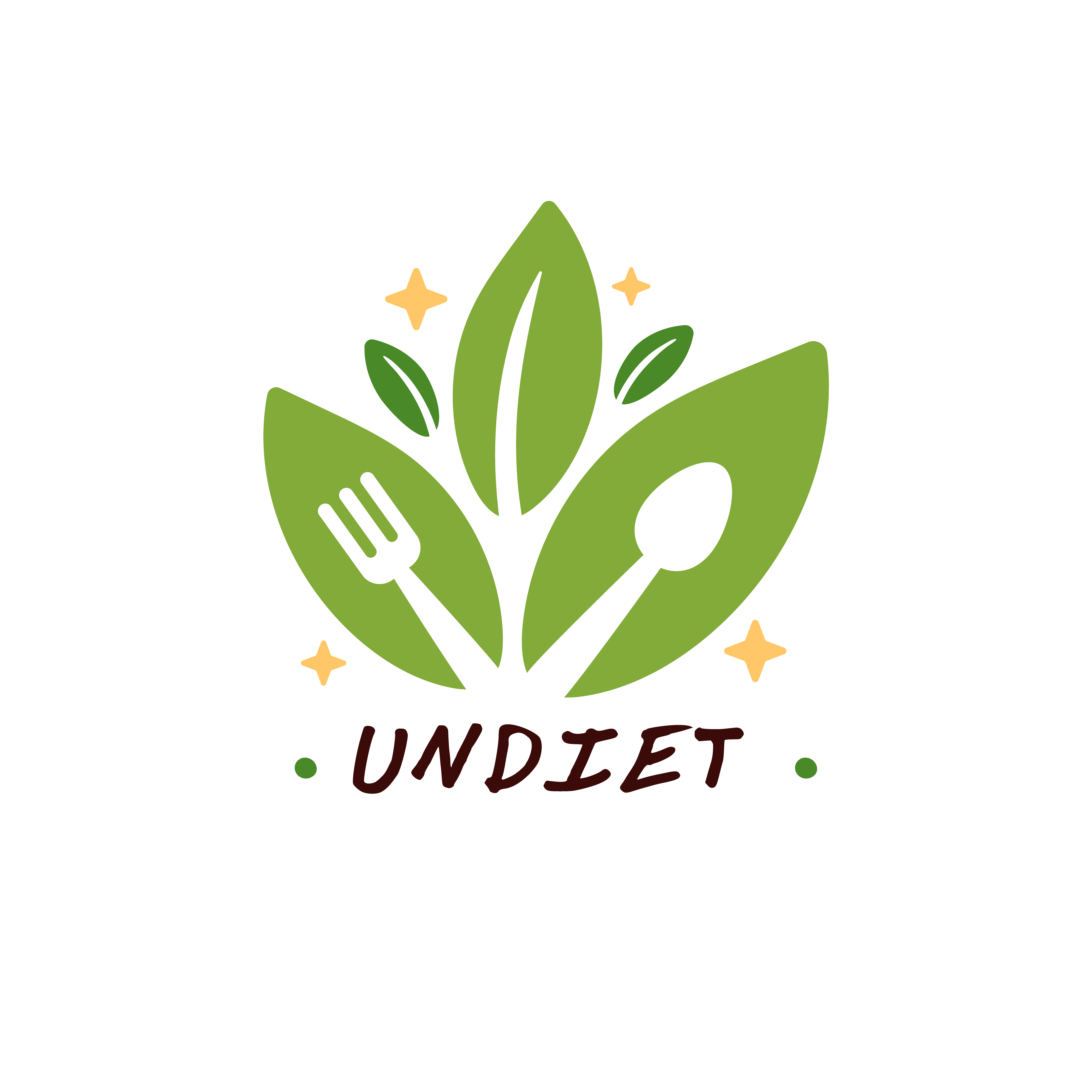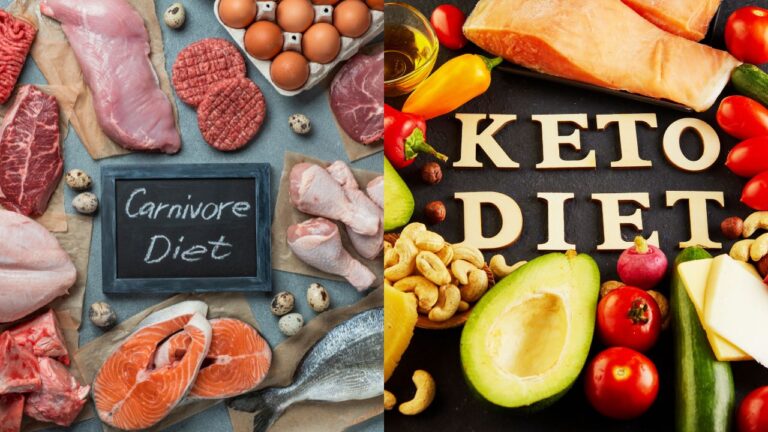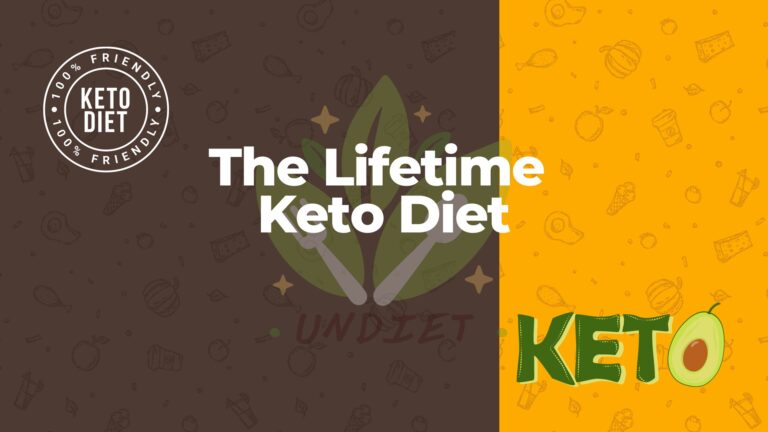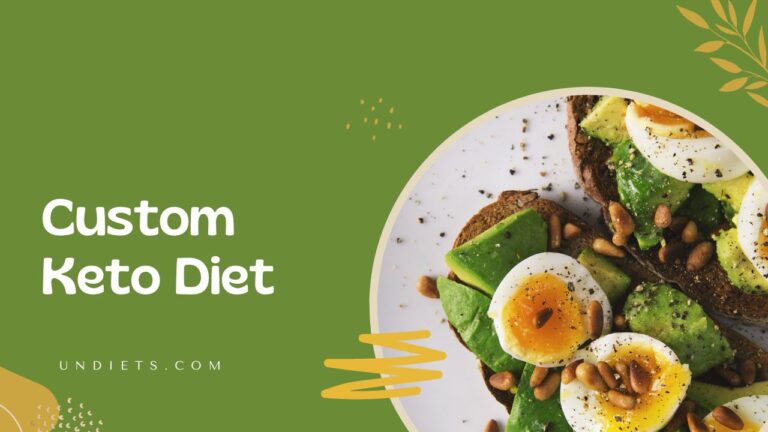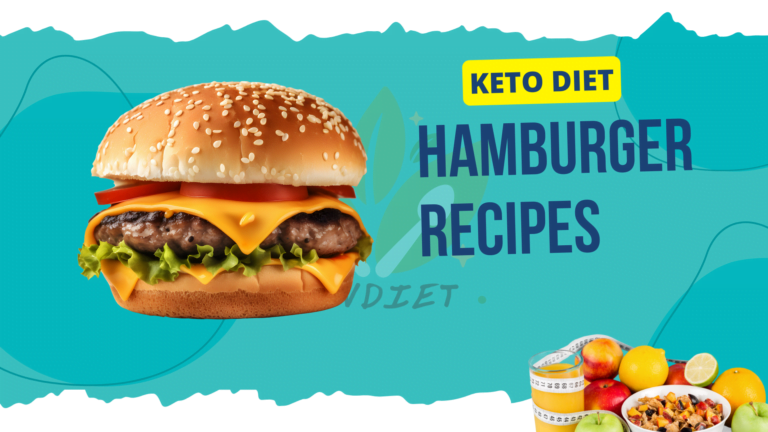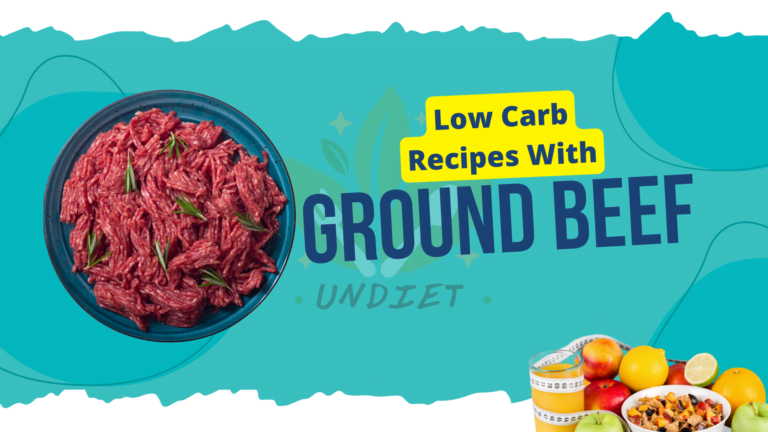Keto Diet Plan for Women Over 50: The Perfect Diet for You

what is the Keto Diet Plan for Women Over 50? A keto diet plan can be effective for women over 50, helping them achieve weight loss and improve their overall health. The high-fat, low-carbohydrate diet can boost metabolism, increase energy levels, and reduce cravings.
Women in this age group need to consult with a healthcare professional before starting any new diet or exercise regimen to ensure it is safe for their individual needs. Additionally, a balanced approach that includes regular exercise, a variety of nutrient-rich foods, and adequate hydration is essential for optimal health and long-term success on a keto diet.
Understanding The Keto Diet For Women Over 50
Discover an effective Keto Diet Plan designed specifically for women over 50. Support your weight loss journey by understanding the principles of the Keto Diet and its benefits for your health and well-being.
The keto diet has gained significant popularity in recent years, especially among women over 50. This low-carb, high-fat diet is known for its potential weight loss benefits and improved overall health. But what does the keto diet entail for women in this age group?
Let’s delve into the details of the keto diet for women over 50.
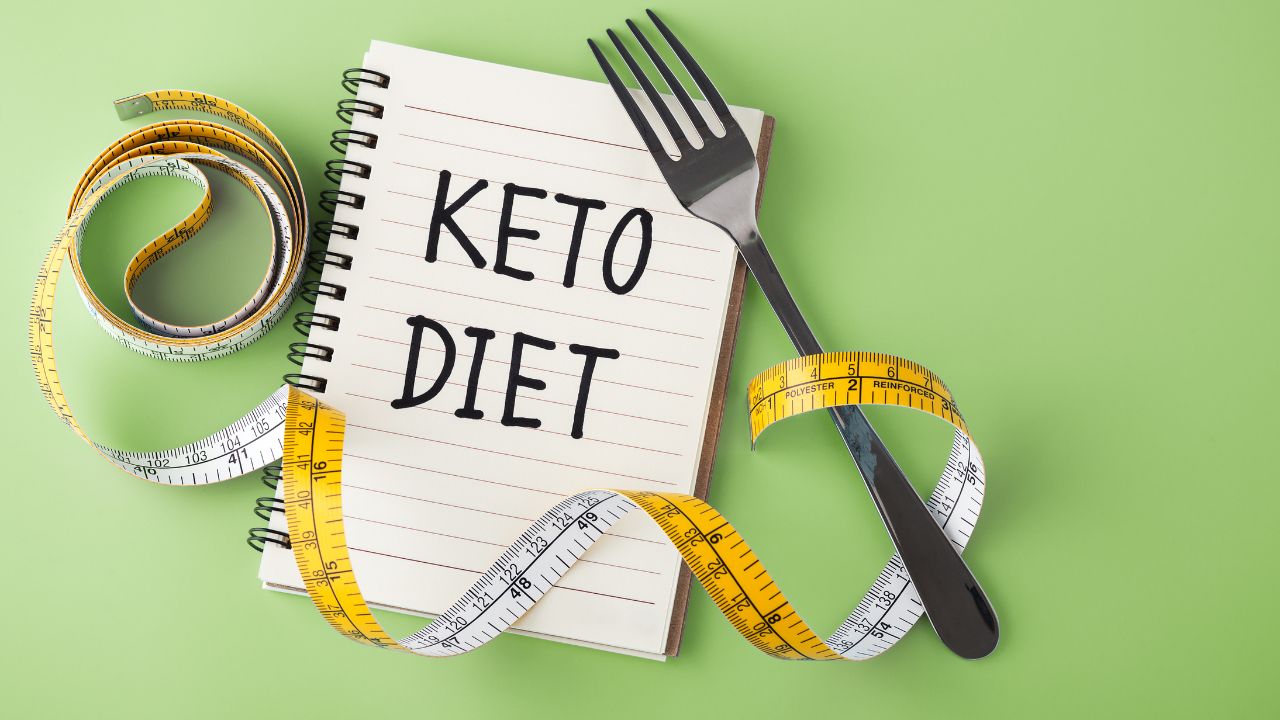
What Is The Keto Diet?
The keto diet, short for ketogenic diet, is a low-carb, high-fat eating plan that aims to shift the body’s primary fuel source from carbohydrates to fat. By restricting carbohydrates and increasing fat intake, the body enters a state of ketosis.
In this state, it becomes highly efficient at burning fat for energy. The keto diet typically consists of 70-80% fat, 20-25% protein, and 5-10% carbohydrates.
Here are the key points to understand about the keto diet:
- Carbohydrate restriction: Keto diet emphasizes reducing carbohydrate intake to a minimum, typically to less than 50 grams per day.
- Increased fat consumption: Healthy sources of fat, such as avocados, nuts, and olive oil, are encouraged on the keto diet.
- Moderate protein intake: The keto diet promotes moderate protein intake to prevent excess protein from being converted into glucose.
The Benefits Of The Keto Diet For Women Over 50
The keto diet offers several potential benefits for women over 50, including:
- Weight loss: By inducing the state of ketosis, the keto diet helps women shed excess pounds by utilizing stored fat for energy.
- Enhanced metabolic health: The keto diet has been shown to improve insulin sensitivity and blood sugar control, which can benefit women dealing with age-related metabolic issues.
- Increased energy levels: Many women over 50 experience a decline in energy levels, but the keto diet can provide a steady source of energy by utilizing fat stores efficiently.
- Mental clarity: The keto diet has been linked to improved cognitive function and mental clarity, which can be particularly beneficial for women in this age group.
How Does The Keto Diet Work For Weight Loss?
The keto diet’s unique mechanism for weight loss sets it apart from other diets. Here’s how it works:
- Ketosis: When carbohydrate intake is significantly reduced, the body starts producing ketones, which are molecules produced from fat breakdown. This shifts the body into a state of ketosis, where fat becomes the primary source of fuel instead of carbohydrates.
- Fat burning: In ketosis, the body starts using fat stores as fuel, leading to increased fat burning and ultimately weight loss.
- Appetite suppression: The keto diet has been known to reduce hunger and cravings, which can aid in calorie reduction for weight loss.
Considerations for Women Over 50 on the Keto Diet:
While the keto diet can be beneficial, women over 50 need to consider a few points:
- Individualized approach: Each woman’s nutritional needs vary, so it’s important to consult with a healthcare professional or registered dietitian to tailor the keto diet plan accordingly.
- Vitamin and mineral supplementation: Restricting certain food groups on the keto diet may make it necessary to supplement essential nutrients like vitamins B and D, as well as minerals like magnesium and potassium.
- Hormonal changes: Women in their 50s may experience hormonal changes, which can impact weight loss and overall well-being. Monitoring hormone levels and adjusting the diet accordingly may be necessary.
Incorporating the keto diet into a woman’s routine can offer numerous benefits, but it’s crucial to approach this diet plan with proper knowledge and guidance. By understanding the fundamentals of the keto diet and considering the unique needs of women over 50, it’s possible to harness the potential of this eating plan for improved health and well-being.
Starting Your Keto Journey: Preparing For Success
Embark on a successful keto journey with our guide for women over 50. Prepare for your new diet plan and set yourself up for keto success.
Embarking on a keto diet can be an exciting and transformative journey, especially for women over 50 who are looking to improve their health and vitality. Before diving in headfirst, it’s crucial to take some preparatory steps to ensure your success on this low-carb, high-fat eating plan.
By following these steps, you’ll not only set yourself up for a smooth transition but also increase your chances of achieving your health and wellness goals.
Assessing Your Health And Consulting With A Healthcare Professional
Before starting any significant dietary changes, it’s essential to assess your overall health and consult with a healthcare professional, such as your doctor or a registered dietitian. They can provide expert guidance tailored to your unique needs and circumstances. During this consultation, consider discussing:
- Your current health conditions or medical history: Certain health conditions may require modifications or specific considerations when following a keto diet. Your healthcare professional can help determine the suitability of this eating plan for you.
- Medications and supplements: Some medications and dietary supplements may interact with a keto diet. A healthcare professional can advise on any necessary adjustments to optimize your health and prevent any potential negative effects.
- Nutritional requirements: Women over 50 have distinct nutritional needs. It’s crucial to ensure your keto diet plan meets these requirements for optimal health and well-being.
Setting Realistic Goals And Expectations
To stay motivated and track your progress effectively, it’s important to set realistic goals and have clear expectations from the start. Here are some tips to consider:
- Define your goals: What do you hope to achieve by following a keto diet? Whether it’s weight loss, increased energy, or improved blood sugar control, setting specific and measurable goals can help you stay focused and motivated.
- Be patient: Rome wasn’t built in a day, and neither will your keto success. Remember that sustainable progress takes time, so be patient with yourself and celebrate small victories along the way.
- Manage expectations: While the keto diet has shown promising results for many individuals, it’s important to understand that each person’s experience may vary. What works for one person may not work the same way for another. Embracing the journey and being open to adjustments can lead to a more positive experience.
Clearing Your Kitchen And Stocking Up On Keto-Friendly Foods
Creating a keto-friendly environment in your kitchen is an essential step in your journey toward success. Here’s what you can do:
- Remove tempting non-keto foods: Clearing your kitchen of carb-heavy and processed foods can help minimize temptation and make sticking to your keto diet plan easier.
- Stock up on keto staples: Fill your pantry and refrigerator with keto-friendly foods to ensure you always have nourishing options readily available. Consider including items such as avocados, nuts, seeds, high-fat dairy products, quality proteins, and low-carb vegetables.
- Read labels and familiarize yourself with carb counts: Developing the habit of reading food labels and understanding nutritional information can empower you to make informed choices and stay within your targeted daily carbohydrate intake.
Meal Planning And Preparing For The Week Ahead
Meal planning is a key component of keto success, particularly for women over 50 who may have busy schedules or specific dietary requirements. Here’s how you can stay ahead of the game:
- Plan your meals and snacks: Take some time each week to plan out your meals and snacks, considering the macronutrient balance and variety. Aim for a range of healthy fats, moderate protein, and low-carb vegetables.
- Batch cooking: Cooking larger quantities and dividing them into individual portions can save time and ensure you always have a keto-friendly meal on hand, even when life gets hectic.
- Prepare for on-the-go eating: If you anticipate being away from home, pack keto-friendly snacks or meals to avoid being caught off guard and resorting to unhealthy options.
By following these preparatory steps, you’ll set a solid foundation for your keto journey. Remember to consult with healthcare professionals, set realistic goals, create a supportive environment, and plan your meals ahead of time. With dedication and perseverance, you’ll be well on your way to achieving your health and wellness goals on the keto diet.
Crafting A Well-Balanced Keto Diet Plan
Crafting a well-balanced keto diet plan for women over 50 involves focusing on lean protein sources, healthy fats, and low-carb vegetables. Finding a balance is crucial in maintaining optimal health and managing weight on the keto diet.
Calculating Your Macro And Caloric Needs:
- To start crafting a well-balanced keto diet plan, it’s essential to calculate your macro and caloric needs. This helps you determine the right proportions of nutrients for your body.
- Begin by determining your energy expenditure and adjusting it for weight loss, weight maintenance, or weight gain goals. You can use online calculators or consult with a healthcare professional for accurate calculations.
- Calculate your macronutrient ratios, which typically involve a high fat, moderate protein, and low carbohydrate approach. Aim for around 70-75% of calories from fat, 20-25% from protein, and 5-10% from carbohydrates.
- Keep in mind that these ratios can be adjusted based on personal preferences, health conditions, and weight management goals.
- Monitor your calorie intake to ensure you are consuming an appropriate amount for your body’s needs. This will help prevent overeating or undereating and support your nutritional goals.
Incorporating Healthy Fats Into Your Diet:
- Healthy fats play a crucial role in the keto diet plan, as they provide a major source of energy and support various bodily functions. Here’s how you can incorporate them into your meals:
- Choose foods rich in monounsaturated fats like avocados, olive oil, and nuts. These fats have been shown to benefit heart health.
- Include sources of polyunsaturated fats, such as fatty fish like salmon and trout, which are high in omega-3 fatty acids. These fats have anti-inflammatory properties and support brain functioning.
- Opt for saturated fats in moderation, mainly from sources like coconut oil, grass-fed butter, and cheese.
- Incorporate healthy fat sources into your cooking and meal preparation, such as using olive oil for salad dressings or adding avocado slices to your meals.
- Be mindful of portion sizes, as fats are dense in calories. Moderation is key to ensuring a well-balanced keto diet plan.
Including High-Quality Protein Sources:
- Protein is an essential component of the keto diet plan for women over 50, as it supports muscle health, promotes satiety, and aids in various bodily functions. Consider the following when including protein in your meals:
- Opt for high-quality protein sources such as lean meats (chicken, turkey, fish), eggs, and plant-based proteins like tofu, tempeh, and legumes.
- Include a variety of protein sources to ensure you’re getting a range of essential amino acids.
- Consider the protein needs specific to your body and goals. Generally, aim for around 0.6-0.8 grams of protein per pound of body weight per day.
- Distribute your protein intake evenly throughout the day to support muscle synthesis and overall health.
- Balance your protein intake with the other macronutrients to maintain ketosis and achieve a well-rounded keto diet plan.
Choosing Nutrient-Dense Vegetables And Low-Sugar Fruits:
- Nutrient-dense vegetables and low-sugar fruits are crucial components of a well-balanced keto diet plan, as they provide essential vitamins, minerals, fiber, and antioxidants. Here’s how to choose them wisely:
- Focus on non-starchy vegetables like leafy greens (spinach, kale), cruciferous vegetables (broccoli, cauliflower), and colorful options like bell peppers and tomatoes.
- Include low-sugar fruits such as berries (strawberries, blueberries, raspberries) in moderation. They provide natural sweetness without causing significant spikes in blood sugar levels.
- Be mindful of portion sizes and carbohydrate content when including vegetables and low-sugar fruits in your meal planning.
- Incorporate a variety of colors and types of vegetables to ensure a wide range of nutrients in your diet.
- Experiment with different cooking methods, such as roasting or sautéing, to add flavor and variety to your meals.
Avoiding Or Minimizing Processed Foods And Sugars:
- Processed foods and sugars should be avoided or minimized in a well-balanced keto diet plan, as they can hinder your progress and have adverse effects on your health. Consider the following tips:
- Limit your consumption of processed foods such as packaged snacks, sugary beverages, and refined grains. These tend to be high in carbohydrates and unhealthy fats.
- Read food labels carefully to identify hidden sugars and avoid products with added sugars.
- Opt for whole, unprocessed foods as much as possible. Choose fresh meats, vegetables, and fruits instead of relying on pre-packaged options.
- Prepare your meals at home to have better control over ingredients and cooking methods.
- As you progress on your keto diet plan, you may find that your cravings for processed foods and sugars diminish, and you develop a preference for whole, nutrient-rich foods.
Remember, crafting a well-balanced keto diet plan for women over 50 involves personalization and consideration of individual needs and preferences. Consulting with a registered dietitian or healthcare professional can provide personalized guidance and support on your keto journey.
Navigating Potential Challenges And Minimizing Side Effects
Navigate potential challenges and minimize side effects with a keto diet plan designed specifically for women over 50. Overcome obstacles and enjoy the benefits of this low-carb, high-fat lifestyle while optimizing your health and well-being.
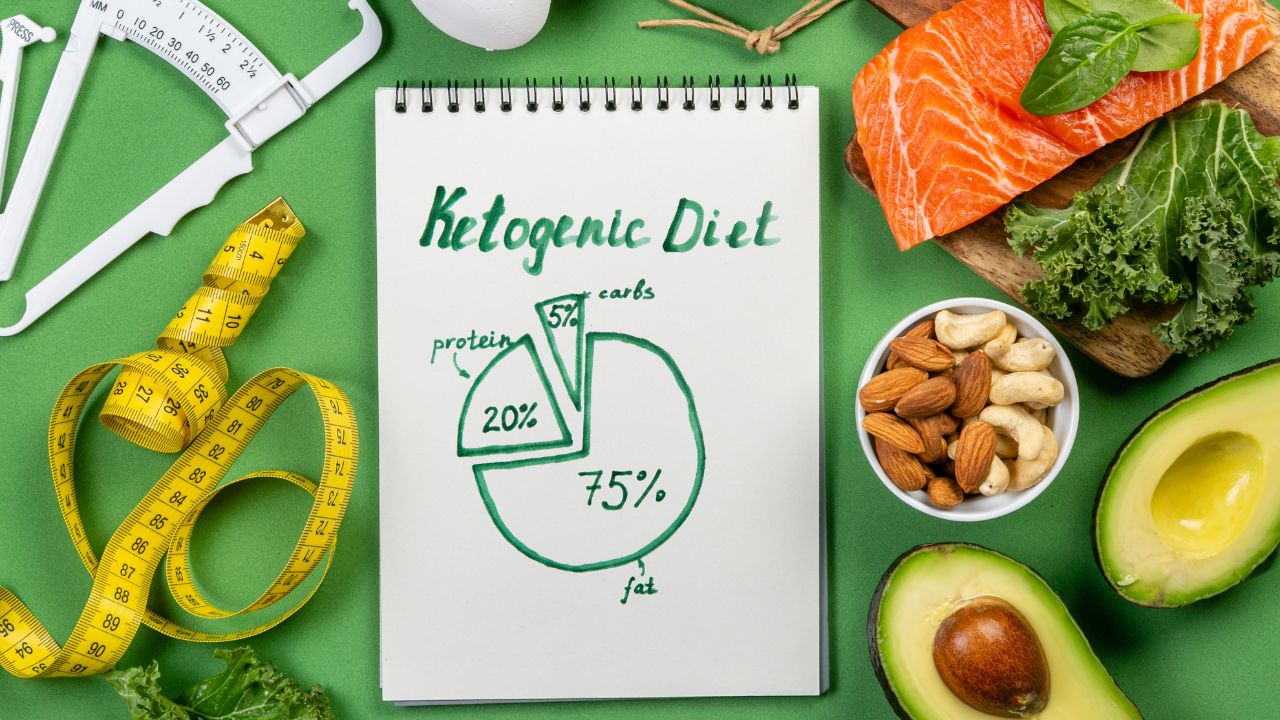
As women over 50 embark on the keto diet plan, they may encounter some challenges and side effects unique to their age group. However, with the right strategies and knowledge, these obstacles can be successfully overcome. Let’s explore some common challenges experienced by women over 50 on the keto diet and how to minimize any potential side effects.
Understanding The Keto Flu And Ways To Alleviate Symptoms
The keto flu, a temporary set of symptoms that might occur when transitioning into the keto diet, can be an obstacle for women over 50. To alleviate these symptoms, consider the following:
- Increase your fluid intake and prioritize hydration to help flush out toxins and alleviate symptoms.
- Increase your salt intake to maintain electrolyte balance, as the keto diet can cause an imbalance.
- Consume foods rich in magnesium and potassium, such as avocados, spinach, and nuts, to support muscle function and reduce cramping.
- Take it easy and allow your body time to adapt to the new eating plan. Resting and avoiding excessive physical exertion during this period can help alleviate symptoms.
Staying Hydrated And Replenishing Electrolytes
Proper hydration and electrolyte balance are essential for women over 50 on the keto diet. Here are some tips to stay hydrated and replenish electrolytes:
- Drink plenty of water throughout the day to ensure adequate hydration. Aim for at least 8 glasses per day or more, depending on your individual needs.
- Consider incorporating electrolyte-rich beverages, such as bone broth or sports drinks with no added sugars, into your diet to restore electrolyte balance.
- Consume foods high in electrolytes, such as leafy greens, nuts, seeds, and low-carb vegetables, to replenish essential minerals.
- Be mindful of your urine color. If it is dark yellow, it may indicate dehydration and the need to increase fluid intake.
Managing Digestive Issues And Increasing Fiber Intake
Digestive issues can sometimes arise when following the keto diet. Women over 50 can minimize these problems by:
- Gradually increase your fiber intake by incorporating low-carb, high-fiber foods like chia seeds, flaxseeds, and vegetables into your meals.
- Ensuring you are consuming enough healthy fats, such as avocados and olive oil, which can aid in digestion.
- Drinking enough water helps with digestion and prevents constipation.
- Considering probiotic supplements or fermented foods like yogurt or sauerkraut to support a healthy gut.
Addressing Potential Nutritional Deficiencies And Supplementation
Women over 50 may be at a higher risk of developing nutritional deficiencies due to various factors. Here are some ways to address these potential deficiencies:
- Consult a healthcare professional or registered dietitian to assess your nutritional needs and determine if any supplements are necessary.
- Consider incorporating a multivitamin specifically formulated for women over 50 to help meet your nutritional requirements.
- Consume a diverse range of nutrient-dense foods, including lean proteins, colorful vegetables, and healthy fats, to ensure adequate micronutrient intake.
- Regularly monitor your blood levels for any deficiencies and adjust your diet accordingly or as advised by a healthcare professional.
By understanding the potential challenges and employing effective strategies to minimize side effects, women over 50 can successfully navigate the keto diet plan and reap its numerous benefits. Remember to always consult a healthcare professional before starting any new diet or making significant changes to your eating habits.
Maintaining A Healthy Keto Lifestyle For Long-Term Success
Maintaining a healthy keto lifestyle for long-term success is crucial for women over 50. By following a carefully planned keto diet plan, women can achieve weight loss, improve their energy levels, and enhance their overall well-being. With a focus on low-carb, high-fat foods and regular exercise, the keto lifestyle can be a sustainable and effective approach for women in this age group.
Following a keto diet plan can be a powerful way for women over 50 to improve their health and overall well-being. However, to experience long-term success with this dietary approach, it’s important to focus on maintaining a healthy keto lifestyle.
Here are some key strategies to consider:
Finding Keto-Friendly Recipes And Meal Ideas
- Explore keto-friendly cookbooks, websites, and social media accounts for inspiration and delicious recipes.
- Incorporate a variety of nutrient-dense, low-carb foods such as lean proteins, healthy fats, and non-starchy vegetables into your meals.
- Experiment with different cooking methods and flavors to keep your meals interesting and satisfying.
Incorporating Exercise And Physical Activity Into Your Routine
- Engage in regular cardiovascular exercises, such as walking, swimming, or cycling, to promote heart health and burn additional calories.
- Include strength training exercises to improve muscle tone and maintain bone density.
- Find activities that you genuinely enjoy to ensure consistency and make exercise a natural part of your daily life.
Prioritizing Quality Sleep And Stress Management
- Aim for 7-9 hours of restful sleep each night to support hormonal balance and optimal wellness.
- Practice relaxation techniques like deep breathing, meditation, or yoga to reduce stress levels and promote better overall health.
- Make self-care a priority by engaging in activities that bring you joy and help you unwind.
Tracking Progress And Adjusting Your Keto Diet Plan As Needed
- Keep a food diary or use a mobile app to track your daily food intake and monitor your macronutrient ratios.
- Regularly assess your progress by tracking weight loss, energy levels, and other key health indicators.
- Adjust your keto diet plan as needed to ensure you continue to meet your nutritional needs and maintain your desired results.
Seeking Support And Accountability Through Online Communities Or Groups
- Join online keto communities or support groups to connect with like-minded individuals who can provide encouragement, advice, and motivation.
- Share your experiences, challenges, and successes with others to stay accountable and motivated on your keto journey.
- Seek guidance from healthcare professionals or registered dietitians who specialize in the keto diet to ensure you’re following a safe and sustainable approach.
Maintaining a healthy keto lifestyle is essential for long-term success on this dietary journey. By finding keto-friendly recipes and meal ideas, incorporating exercise and physical activity, prioritizing quality sleep and stress management, tracking progress and adjusting your keto diet plan, and seeking support and accountability through online communities or groups, you can set yourself up for continued success and improved well-being.
Stay committed and make this lifestyle your own, and you’ll reap the benefits for years to come.
Frequently Asked Questions For Keto Diet Plan For Women Over 50
Does Keto Work For 50-Year-Old Women?
Yes, keto can work for 50-year-old women. The ketogenic diet is a low-carb, high-fat diet that helps the body burn fat for energy. By limiting carbs, the body enters a state of ketosis, where it uses stored fat for energy instead of glucose.
This can lead to weight loss and improved health markers. The keto diet can be effective for women in their 50s as it helps regulate insulin levels, boosts metabolism, and reduces inflammation. However, it’s essential to consult with a healthcare professional before starting any diet.
They can provide personalized guidance based on individual health conditions and goals. Additionally, incorporating regular physical activity and maintaining a balanced diet is also important for overall well-being.
Can A Menopausal Woman Lose Weight On Keto?
Yes, a menopausal woman can lose weight on the keto diet. The ketogenic diet is a high-fat, low-carb eating plan that has been shown to promote weight loss. By restricting carbs, the body enters a state of ketosis, where it burns fat for fuel instead of glucose.
This can lead to significant weight loss. Additionally, the keto diet can help reduce symptoms associated with menopause, such as hot flashes and sleep disturbances. It may also help regulate hormones and improve overall well-being. However, it’s important to consult with a healthcare professional before starting any diet, especially during menopause, as hormonal changes can affect weight loss progress.
With the right guidance and adherence to the keto diet, menopausal women can achieve successful weight loss results.
What Is The Best Diet For A 50-Year-Old Woman Going Through Menopause?
The best diet for a 50-year-old woman going through menopause is one that focuses on nutrient-dense foods. Include plenty of fruits, vegetables, whole grains, lean proteins, and healthy fats in your meals. A balanced diet rich in vitamins, minerals, and antioxidants will support your overall health during this phase.
Choose foods that help manage menopausal symptoms like hot flashes, such as soy products, flaxseeds, and fatty fish. Stay hydrated by drinking enough water and limiting your intake of caffeine and alcohol. Regular exercise is also important for maintaining muscle mass and bone strength.
Consider consulting a healthcare professional or a registered dietitian for personalized advice. Find a diet that suits your preferences and lifestyle, along with portion control, and enjoy a healthier menopause journey.
How Many Pounds Can I Lose On Keto In 50 Days?
On a keto diet, you can lose up to 20 pounds in 50 days.
Conclusion
The keto diet plan holds great potential for women over 50 looking to improve their health and overall well-being. By reducing carbohydrates and increasing healthy fats, this diet can aid in weight loss, stabilize blood sugar levels, and promote mental clarity.
The emphasis on nutrient-dense foods like vegetables, lean proteins, and healthy fats ensures that the body receives the necessary vitamins and minerals. Additionally, the keto diet can support muscle mass, bone density, and metabolic function as women age. To ensure success on this diet, it is crucial to consult with a healthcare professional, tailor the plan to individual needs, and prioritize proper hydration and exercise.
With commitment and dedication, women over 50 can experience the numerous benefits of the keto diet, promoting a healthier and more vibrant lifestyle.
